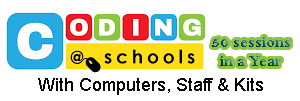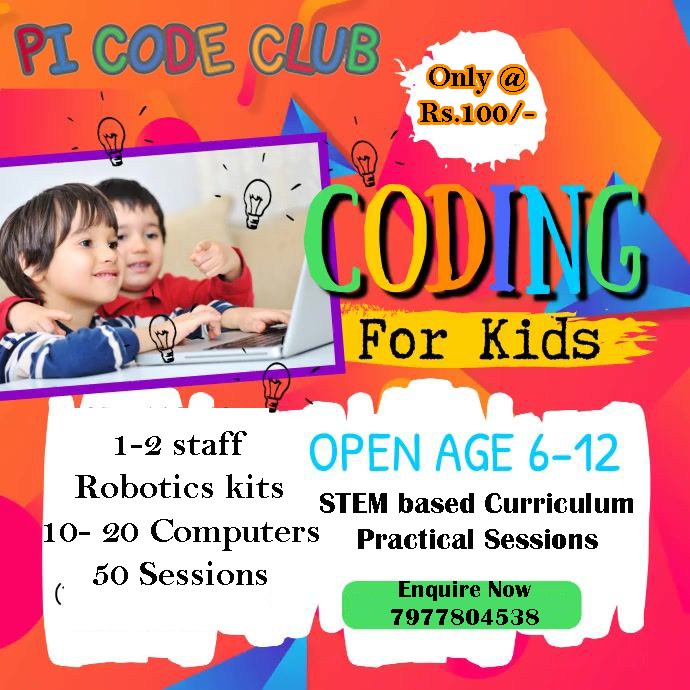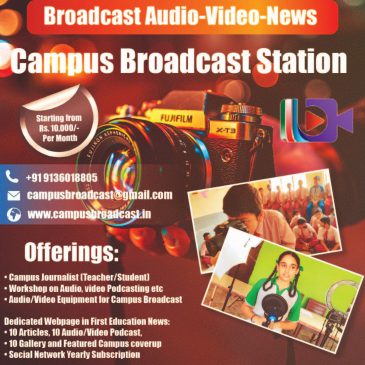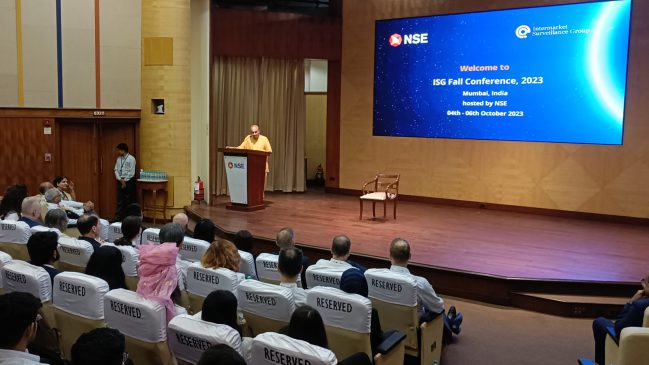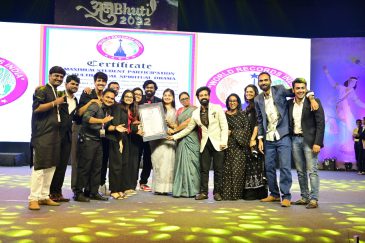Ideas Challenge: Science and Technology Literacy (Sci-Tech Literacy) for all Indians
Are you a student? Then, this ideas challenge is for you. Can you help lay the foundation for the design of a Science and Technology Literacy (Sci-Tech Literacy) training course syllabus that can be used to make all Indians science and technology (sci-tech) literate? This article helps you understand how to register and complete the submission or participation form.
Read more about the rationale for this Science & Technology literacy challenge by clicking here
If you are Ready – Go to Registration Page & Submission Page by clicking here
Do you have a solution for India? Can you design a science and technology (sci-tech) literacy syllabus with a list of topics that every Indian, from the poorest farmer to the richest stockbroker, should know about science and technology?
Imagine a tailor from Tamil Nadu, a kindergarten teacher from Kashmir, a housewife from Howrah, a garment manufacturer from Gujarat, a B-Tech from Bengaluru and a milkman from Madhya Pradesh. What do they have in common? They are all Indians. Why should all Indians not have the basic minimum knowledge about science and technology? In order for India to continue in the list of top five economies, all Indians have to be globally competitive. To lead a healthy, good quality of life all Indians have to know the basics of science and technology.
This is your challenge? How do you ensure that all Indians, irrespective of social class, gender, social position, income, formal schooling have basic knowledge about science and technology?
What is that basic minimum that they should know? What are the fundamental things or topics related to science and technology (Sci-Tech literacy) that all of these people (Indians) need to know in order to lead good quality lives today?
Please go to the registration and submission link or URL. Fill in the steps and boxes, and click on Submit. Participate and win prizes and also contribute to change in India. You could win the SATYA Award (Science and Technology – Youth Advancement Award) with attractive prizes, participation certificates, and also get a chance to be part of a national or state-wide advocacy effort. The best ideas will be put together in a document that serves as an advocacy document and a policy brief and will be sent to the Education Departments of various state governments.
[To teachers and guardians: If you are a teacher or guardian, then please encourage students to participate in the “Ideas Challenge.” Send or share this link or website address with students.]
Website: firsteducationnews.com
What do we mean by Sci-Tech literacy?
Read more about the rationale for this Science & Technology literacy challenge by clicking here
This ‘science and technology (Sci-Tech) literacy’ course syllabus or topics list should consist of all those topics that are required (to be known) by each person, the poorest person on the planet or the richest billionaire, so that she or he can navigate today’s science and technology-intensive world. Science and Technology (Sci-Tech) Literacy will enable every person to lead an informed, environmentally-balanced, productive, good quality of life.
A person who balances technology, environment, personal, physical, and social needs will be able to obtain a higher quality of life for herself/himself and also help others do the same. Basic scientific and technology (Sci-Tech) literacy will not only help people lead better lives, it will also help them create sustainable livelihoods, ensure that they are successful and competitive in the global arena.
What are the questions I have to answer in the Ideas Challenge?
Ask yourself the question: What is the basic minimum science and technology literacy that a person needs in order to navigate today’s world?
Should everyone know how to change a light-bulb? Should they know how to purify water? Do they need to know how to extract iron from iron ore? Should they know how to protect themselves from diseases? Or should they know how to build a spacecraft? Should everyone know about technology-based crimes?
Obviously, most people need not know everything or any particular thing in too much depth. That job of seeking in-depth knowledge on a specific topic is for scientists or professionals. However, each and every citizen should have a fundamental understanding of how basic science and technology works within human society and the interactions between technology, people and the planet.
When you go the registration site, it will first ask you to fill some details about yourself.
Then it will take you to the main submission section.
There are three main questions to be answered.
First question– WHAT? The first question of the challenge asks the question: WHAT? What is it that every citizen should know? Think and list all the topics today’s citizen must know to achieve Scientific and Technology Literacy.
Once you have your list ready, you can fill up to 25 numbered boxes – each box with one topic.
Second question: WHY? After you have written the topic in the “what” box, you will have to explain very briefly “why” each citizen should know these topics. This is a brief rationale. How will knowing this topic help the citizen or the country?
Third question: HOW MUCH? Finally, you have to also think and write exactly “how much” each citizen should know about each topic. You could state three to five points they should know for each topic. (Also see Submission details below)
MORE TIPS FOR PARTICIPANTS
I. In order to get more food for thought, you could try looking at the topics in a EVS (Environmental Science) text book. What is it trying to tell us?
II. Some examples of topics are provided below:
A) In these times of Covid-19 – it is clear that people are not clear about how diseases are transmitted. In order to live a safe and healthy life in the future, should every person in India have basic knowledge about disease transmission, how infectious diseases spread, and how these diseases can be stopped?
B) Many Indians are dying of non-communicable diseases such as heart disease or due to the harmful consequences of using tobacco. Should every Indian know about preventive behaviors for better health?
C) We read about pollution and many in cities experience it on a daily basis. There is air pollution, water pollution, and noise pollution. Should every Indian know about and have a basic understanding of air pollution, water and noise pollution and how to reduce it?
D) We have read about plastic affecting marine life and animals in the oceans. Should every Indian know about plastic waste, what it is doing to our planet and our lives, and how to prevent it?
E) Should all Indians know about climate change and its effects such as rising of ocean water levels? How much and what exactly should every Indian know?
F) Should all Indians know about the phenomenon of monsoon because it is extremely important for agriculture and food production in India?
G) Should all Indians know about purifying water? Water-borne diseases are common.
H) Should they know about food safety?
I) Should they know something about electricity?
J) Should they know about cooking gas and how to use it safely?
K) Every house has a refrigerator? Should people know about cold storage of food and possible harms if proper protocols are not followed?
The above are just examples of some items that could be put in the list of topics. However, ask yourself, think about it, or discuss with your support team and then figure out your list.There is no right or wrong answer. There is simply your answer to the problem.
The entry or submission that provides a comprehensive list, and yet a concise one, will probably stand a better chance because the list is expected to help make all Indians literate in science and technology. Most importantly, it should be achievable. Therefore, the list cannot be too long. It should be practical and something that can be actually delivered. Therefore, the list of topics and what each person should know about this topic should be clearly defined.
What are the steps for SUBMISSION of my entry?
There are four steps you have to follow and complete in order to qualify for an award. This will standardize the responses and make it easier for the judges to evaluate the entries. The steps are explained below.
Steps:
- Registration: Please go to the website and register your name. In order to participate, you have to be a student enrolled in any school/college/university in India. Please put other details such as age, gender, your grade/standard/level, school/college name, school/college address, pincode and region. In the same form, you will find items that ask whether you took the help or support of others in completing this assignment. There is no harm in taking the support and help of others as long as the bulk of the thinking is done by you. However, in science it is important to acknowledge the help taken from others. Please enter the names (and relation) of the people whose support, advice and help was taken. These advisors, supporters could be anyone from a classmate, friend, parents, relatives, teacher, neighbor or anyone else.
You can register any time. You can also register on the day you want to submit your entry.
After you have registered you will get a user-name and password. Please save that. Then prepare for the “Ideas Challenge” as suggested below.
Once you are ready to submit, go back to the website. Enter your username and password. It will take you to three boxes that you have to complete for the Ideas Challenge.
- Submission
In preparing for the “Ideas Challenge,” first, you (and your supporters/advisors) have to first create a list of topics that, in your opinion, every person in India should know in order to make them scientifically literate. So, first make a list of topics. (some examples are given above) of the Ideas Challenge.
Topic number 1
Box1: WHAT?Write the topic inBox 1 (What is the Topic?).
Box2: WHY? Remember you have to explain WHY each topic is included. In Box 2 (Why this topic?), you will have to provide a brief rationale or write-up. Why do you think knowing about this topic will help a person navigate today’s world or make them literate in science and technology? Why do you think having a fundamental grasp of that topic will help a person achieve a healthy and good quality of life for themselves and their environment?
Box 3: HOW MUCH? Finally, you have to state how much of this topic each person should know? Describe no more than three to five key points that they should know for each topic. This is to be filled in Box 3.
REPEAT AS ABOVE FOR Topic number 2
And so on till you have completed entering the entire list of topics you have thought of.
Who is eligible for the Sci-Tech Literacy Ideas Challenge?
The challenge is open to individual students enrolled in any educational institution in India. At the time of submission, you have to be registered as a student in a school or college or university in India. You are free to take the help of anyone but please acknowledge their support and advice. You could include your classmates, your friends, your teacher or any other person such as a family member, parent, neighbor or family friend. Please write the names and other details of your support team or advisors during the registration process.
You should make a list of the names of your support team / advisors and enter their age, gender, occupation, and also state (in brief) each support person’s contribution to the effort.
NO Entry Fee
There is no entry fee. There is no participation fee involved. What we are looking for is your interest and commitment to making India a country with a very high human development index.
How do I submit my entry?
Please go to the link. https://forms.gle/aGPv6o1wf7j9ZDdZA
Please register first.
Please prepare your answers.
Please go to link and write your answers or responses to the above three questions in the designated boxes in this web link.
Click on Submit.
Queries and questions
If you have any queries or questions please send them to the email address firsteducationnews@gmail.com
What is the Award?
All entries will get a participation certificate.
The top three entries will win the SATYA Award (Science and Technology – Youth Advancement) Award.
Cash prizes: In addition to a special certificate, there are three cash prizes.
The best response will get INR 10000/-
The second will get INR6500/-
The third will get INR3500/-
The cash prize will be deposited in the bank account of the winning person (who should be an enrolled and registered student). There could be a verification of the student’s status. Winning students will have to send us an email receipt once the cash is deposited and received in their account. The cash awards will be announced on First Education News web portal exactly two months after the closing date or final submission date of this year’s “Ideas Challenge.”
Some of the responses approved by the judges will be published in First Education News (an online education portal).
The best ideas will be put together in a document that will serve as an advocacy document and a policy brief and will be sent to the Education Departments of various state governments.
Judges Panel
A distinguished panel of judges will evaluate the entries. The panel of judges will be from diverse fields ranging from genetics, physics, population health, education, social work. We will ensure that reputed female scientists, practitioners, and academics of Indian origin or those researching and practicing in India are invited to the panel.
—————:
This competition is conceptualized by Mr. Satya Charan Chatterjee. The effort is supported by Imagic Foundation and First Education News (CampusOne). Support for design and evaluation of entries is provided by Kapila Khandvala College of Education (KKCE), Mumbai.

